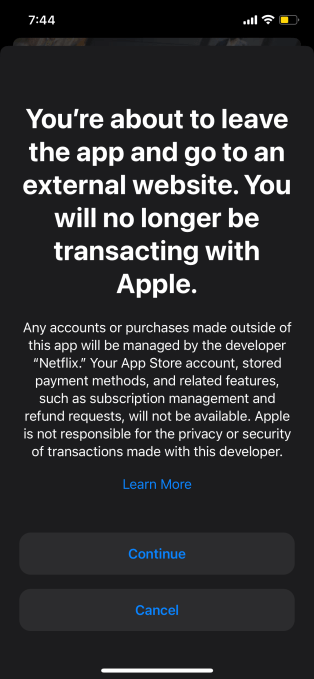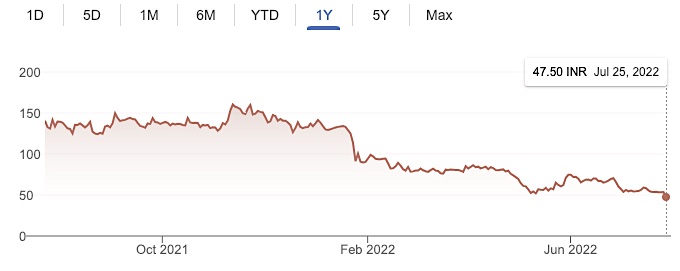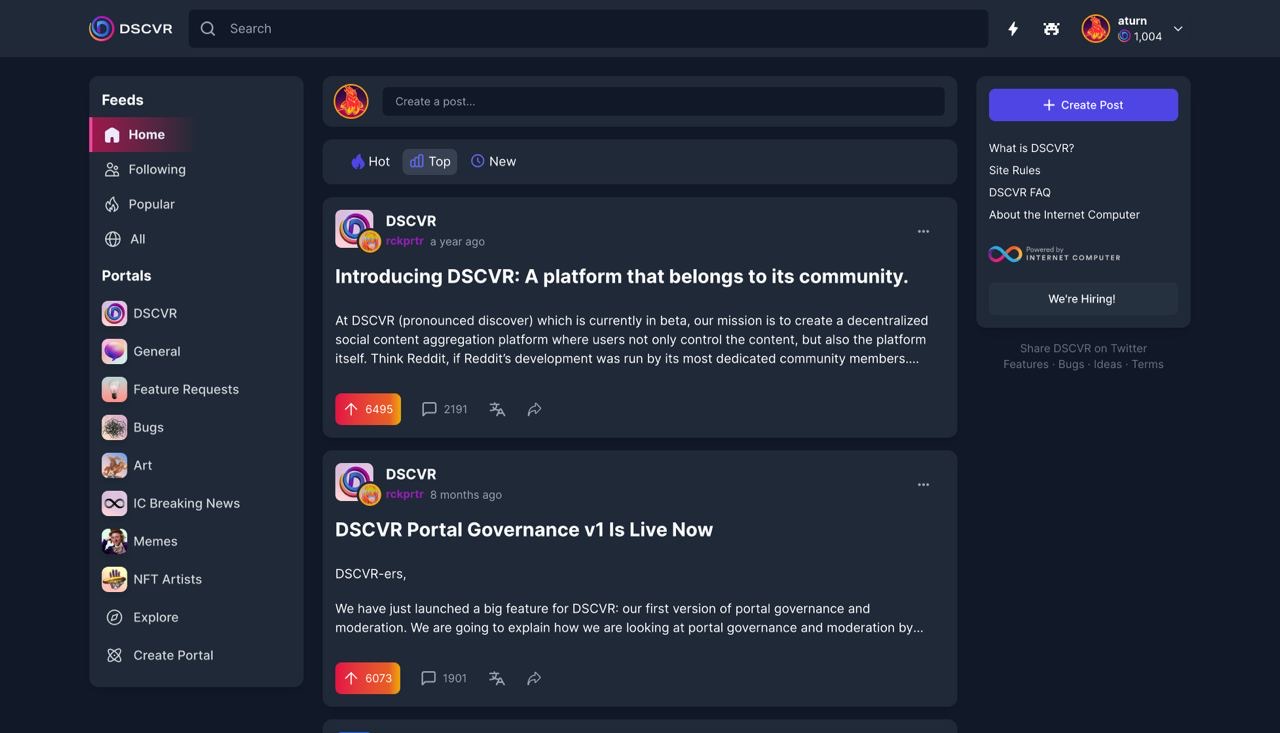Category: TECHNOLOGY
BAI Capital targets China’s globalizing startups with fresh $700M fund
BAI Capital, the storied China-focused venture investment firm that was formerly known as Bertelsmann Asia Investments, has raised $700 million to back Chinese companies that are part of the country’s structural reform as well as those expanding overseas.
The announcement follows on the heels of the closing of several other big-ticket funds, quelling speculation that foreign capital for Chinese tech is drying up amid a slowing economy. Sequoia Capital China recently snagged $7 billion to bet on Chinese tech companies at all stages. Qiming Ventures raised $3.2 billion. And IDG Capital banked $900 million.
BAI Capital was founded in 2008 as an investment arm of German media mogul Bertelsmann and has surged to become one of the top venture players in China with a portfolio of over 200 tech companies. Its notable investments include electric vehicle upstart Nio, Southeast Asia’s popular livestreaming app Bigo, and China’s shared bike pioneer Mobike, which was acquired by Meituan.
The latest close marks the first time that BAI Capital has brought in external limited partners, including sovereign wealth funds, large insurance companies, internet giants, funds of funds, on top of capital from its parent Bertelsmann.
The new fund, according to BAI’s announcement, focuses on helping Chinese companies from retail, fintech, content, media, as well as the red-hot areas of web3 and metaverse that are expanding globally. BAI is setting up new offices in Singapore and Berlin.
At the same time, the fund will also look for domestic opportunities in deep technologies like renewable energy, autonomous driving, and software-driven industrial upgrade solutions.
Global expansion is no small feat for any startup, not to mention Chinese businesses that are at risk of getting snarled in rising geopolitical tensions. BAI Capital’s founding partner Annabelle Yu has this to say in a statement:
“BAI Capital will continue to leverage Bertelsmann’s enormous global network in media, education, and service, especially its deep influence in Europe, and join hands with more limited partners to play to BAI’s unique advantage. Against an increasingly complicated political and economic environment, we will do our best to serve entrepreneurs with global ambitions and help them achieve success amid international competition and cooperation.”
https://techcrunch.com/2022/07/24/bertelsmann-asia-bai-capital-700-million-fund/
Zomato drops 14% to all-time low as lock-in period ends
Shares of Zomato dropped as much as 14.3% on Monday to an all-time low after the end of the lock-in period for investors who had stakes in the company prior to the initial public offering in the latest setback for retail investors backing the Indian food delivery firm.
The stock dropped to as low as 46.15 rupees (58 cents) apiece, giving the company a market cap of $4.5 billion, far below the $13.2 billion valuation it accrued on its debut day a year ago and also below the $5.4 billion valuation at which it raised money in a January 2021 financing round as a startup.
Zomato, the first Indian consumer tech startup to go public last year, had raised $1.3 billion ahead of the listing from scores of investors including Tiger Global, Fidelity, Government of Singapore, Canada Pension Fund, T. Rowe Price, Morgan Stanley and Steadview. The investors had subscribed the shares at 76 rupees (95 cents). Shareholders and founders owned about 78% stake in the company before the listing and were permitted to sell without disclosure from July 23.
Shares of the company, which has lost more than 60% of their value since the listing day last year, have been feeling additional pressure of late following its recent proposed acquisition of instant delivery firm Blinkit in a deal that many analysts say is overpriced and riddled with conflict of interest.
Zomato competes with Swiggy, a much younger firm which raised capital in a round from investors including Invesco at a valuation of $10.7 billion earlier this year. With the acquisition of Blinkit, the Gurgaon-headquartered firm is looking to enter the instant grocery delivery space, a capex heavy category where it has traditionally struggled and face off with even more competitors including Y Combinator-backed Zepto.
Shares of all Indian startups — including Paytm, Nykaa and Policybazaar — that went public last year are down considerably from their debut prices as markets globally reverse most of the gains following a 13-year long bull cycle. The downturn has trickled down to the startup landscape as well, prompting a valuation cut amid a wide funding crunch.
Executives of Zomato, which is still not profitable, have refused to share when they think the company will stop burning money and have rejected most of their earnings calls with analysts.
https://techcrunch.com/2022/07/24/zomato-drops-14-to-record-low-as-lock-in-period-ends/
China Chases Chip-Factory Dominance—and Global Clout
Its chip makers are boosting production of mature semiconductors now in high demand, a move that could give them more influence in the global industry. …read more
Allwhere launches out of stealth to help companies manage their remote workforces
Given the recent economic downturn, some companies are skeptical that the pandemic-led move to remote and hybrid work will have staying power. According to an April survey by Good Hire, 77% of managers said they’d considering firing employees or cutting their pay for refusing to return to the office. Most expressed concerns about remote employees’ perceived lack of focus, negative impact on company culture, and productivity issues.
Oscar Mattsson is of a different opinion. That’s not shocking — his startup, Allwhere, sells businesses tools for facilitating remote work. Emerging from stealth today with $9.5 million in seed funding from DESCOvery, Allwhere aims to work with companies to implement remote work setups, manage the lifecycle of equipment from procurement to disposal, and craft onboarding, engagement, retention, and wellness programs, Mattson said.
“While the current market is temporary, the new ethos that’s emerged regarding flexibility and employee wellness is permanent. Teams have realized that they can work just as efficiently using a distributed model, and a strict return-to-office plan often leads to losing top contributors even in a recession,” Mattson said. “[But] after two years of remote and hybrid work, nearly half of knowledge workers still do not have the tools they need to do their job. As a result, budgets are lost, and employees are stretched thin, which is why companies outsource these tasks in the first place.”
Mattsson began his career at WeWork, where he was a founding member of the company’s enterprise division before working with partners to expand WeWork into daycare, food and beverage, mobility, and other areas. While he saw WeWork through its low points, Mattsson says he ultimately saw the value in services that enable flexible work.
Mattsson founded Allwhere in 2021 within DESCOvery, D.E. Shaw’s venture studio, where he was joined by WeWork alumni Ben Kessler (Allwhere’s chief marketing officer) and Josh Rosenthal (head of customer experience).
“I saw a gap in the market for a solution that catered to the needs of businesses that were adapting to a newly remote, hybrid, and distributed world,” Mattsson said. “Allwhere is an Old English term meaning ‘everywhere,’ which aligns with our mission to support employees and employers in any type of workplace.”
Allwhere furnishes corporate customers with employee equipment, products, tools, and perks, even going so far as to find vendors and suppliers. In addition to installation and retrieval of office hardware, furniture, and accessories, Allwhere provides wellness programs, subscriptions, gifts, IT hardware repairs and upgrades, and more.
Image Credits: Allwhere
Using Allwhere, companies can build their own white-labeled “stores” with configurable kits and HR and IT process integrations. Dashboards allow management to oversee the doling out of equipment, wellness, and perks as well as budgets and status updates. Meanwhile, when provided a link to the aforementioned store, employees can select the equipment, benefits, and services they need and get tracking information as well as pick-up and delivery options for any applicable equipment.
Mattsson says Allwhere has worked with customers looking to onboard new hires with …read more
Instacart expands its EBT SNAP payments program to 10 more states
Instacart announced today that Electronic Benefits Transfer and Supplemental Nutrition Assistance Program (EBT SNAP) can now be used to buy groceries online in 10 additional states through its app. The 10 states are Colorado, Hawaii, Idaho, Louisiana, Montana, New Mexico, Oregon, Utah, Washington and Wyoming.
Instacart says Albertsons Companies and Sprouts Farmers Market are among the first to accept EBT SNAP online in these states. With this expansion, grocers of all sizes can use Carrot Payments, an Instacart Platform solution, to accept EBT SNAP payments online across 49 states and Washington D.C.
Image Credits: Instacart
“At Instacart, our goal is to continue unlocking access to nutritious food for those who need it most,” said Sarah Mastrorocco, the Vice President of Access to Food & Nutrition at Instacart, in a statement. “We’ve long advocated to expand online EBT SNAP acceptance, and we’re proud to bring this critical service to people in 10 additional states in partnership with grocers that people know, love and trust. Our partners offer a broad selection of fresh food and pantry staples, and with this expansion, we’re giving more families access to nourishment, paired with the convenience of same-day delivery and pickup.”
The company launched EBT SNAP payments in November 2020 and has since expanded the program to include over 40 retailers. With these expansions, Instacart says it now powers EBT SNAP payments for more than 60 retail banners spanning more than 8,000 stores. Instacart offers EBT SNAP acceptance through the Instacart Platform, a suite of enterprise-grade solutions that help enhance and digitize retail experiences. EBT SNAP participants can shop for pickup or delivery via the Instacart App and grocers’ Instacart Platform-powered websites and apps.
https://techcrunch.com/2022/07/25/instacart-expands-ebt-snap-payments-program-10-states/
GM is launching an online EV service to educate and woo consumers
General Motors launched a program Monday to educate car shoppers on electric vehicles and target first-time buyers as the automaker searches for ways to catch up to and outpace rival Tesla.
The automakers hopes EV Live, a digital platform that connects shoppers with EV specialists, will speed EV adoption and create a larger market for its new battery-electric models, including the just-launched Chevrolet Blazer SS. Available seven days a week, EV Live provides real-time answers on EV-related questions such as how to use a public charging network or install a home charging station.
Addressing “common misconceptions about EVs will accelerate widespread EV adoption,” said Hoss Hassani, GM vice president of EV Ecosystem.
Users can learn more about EV technology, sustainability and mobile apps through one-on-one live video tours, where the specialist can hear but not see the user. GM said it plans to add group tours and pre-recorded sessions later this year.
U.S. sales of new EVs rose 13%, to 196,788 units, between April and June 2022, compared with the first three months of the year, according to Cox Automotive. However, a lack of education around battery-electric cars, trucks and SUVs remains a barrier to adoption, according to a Consumer Reports survey released this month. American drivers surveyed reported confusion over how EVs work, charge their batteries and unlock tax incentives.
“EV Live lets us meet people where they are and have a real conversation about electrification,” Hassani said. “We’re selling the EV experience, rather than specific EVs.”
EV Live is among a range of initiatives the automaker announced this summer to supplement its $750 million investment in charging infrastructure. In July, GM said it plans to partner with Pilot Flying J to build out a national DC fast-charging network for EVs.
The automaker said in June it will equip its battery-electric models with “Plug and Charge” capability to help standardize public charging. Charging logistics is the top barrier to purchasing or leasing an EV, with 61% of drivers surveyed reported concern, according to Consumer Reports.
https://techcrunch.com/2022/07/25/gm-launches-ev-live-to-educate-car-shoppers/
Real driverless cars are now legal in China’s tech hub Shenzhen
There are plenty of autonomous driving vehicles testing on the roads of Shenzhen today: Pony.ai, Baidu, DeepRoute, AutoX, you name it. But these vehicles are not really the unmanned vehicles tech upstarts envision for the future, as they have been required to operate with a safety driver behind the wheel.
A set of provisions introduced by the Shenzhen government is bringing the industry one step closer to a driverless future. The “Silicon Valley of China” that’s home to the likes of Huawei, Tencent, and DJI is historically known for its progressive economic policies, so it’s unsurprising that the city just became the first in China to have laid out comprehensive rules governing smart and connected vehicles.
The regulation, which is set to take effect on August 1, grants permission for autonomous driving vehicles to operate without a human in the driver’s seat — though only within areas designated by the city’s authorities.
The rules also define the thorny issue of liability. When the vehicle is equipped with a driver, the driver will “be handled” by the transportation authorities in case of traffic rule violations and incidents. But if the car is completely driverless, the owner or manager of the self-driving vehicle is subject to handling by the authorities. If the accident is a result of a defect in the connected car, the owner or manager of the car can seek compensation from the manufacturer or vendor.
Driverless robotaxis have been allowed to operate in Beijing, the capital city where events often serve as the bellwether for the rest of the country, but the permission comes in the form of case-by-case “permits” rather than being officialized in regulations as is the case with Shenzhen.
Major autonomous driving players in China have all opted for a lidar-based route instead of one that relies purely on vision tech like Tesla. Meanwhile, passenger car manufacturers are in a race to equip their latest models with advanced driving assistance tech, which is also powered by lidar. Robo vans designed to ferry things inside industrial facilities are similarly equipped with lidar.
Demand from these various fields has been a boon to domestic lidar makers like Hesai, Robosense, Livox, Innovusion as well as foreign ones such as Ouster. Luminar, the Florida-based lidar company, recently snagged a strategic investment from Ecarx, a smart car platform started by China’s auto mogul Li Shufu, the founder of Geely, which is expected to help it secure more business in China and beyond.
https://techcrunch.com/2022/07/25/real-driverless-cars-legal-in-chinas-shenzhen/
The race to build a social media platform on the blockchain
“People need distribution for their NFTs. They want to achieve liquidity for their NFTs, and they need real people, not bots, to own these NFTs and to potentially hold on to them ourselves. So we become a distribution channel for NFTs so that [people seeking distribution] have a 10,000 entity collection and they might drop 1,000 to our top users,” Porter said.
DSCVR has onboarded over 100,000 users, according to Porter, and has generated “millions of dollars” in NFT rewards for those users through the airdrop reward mechanism. What sets it apart from other DeSo platforms, Porter said, is in its goal to build a bridge between web2 and web3.
“How do we take a typical web2 user who may not be comfortable with web3, and introduce them to web3 technology and give them that absolutely authentic and truly native experience within web3 without making major sacrifices to bridge that gap? That’s one of the differences that we’re looking at, is we are trying to increase the amount of perspective or increase the amount of fidelity that may be given out of a web3 experience,” Porter said.
To that end, Porter noted, linking an external wallet through MetaMask or another provider to a social profile can be complicated, particularly for those less familiar with web3 technology. DSCVR’s answer lies in its native wallet, which Porter says is available to users on the platform and does not require them to hand over control of their own keys.
The question DSCVR is trying to answer, he added, is how to give users a web3 native, decentralized experience with “little to no sacrifice.” It’s interesting that the company chose to build on the Internet Computer protocol rather than Ethereum, the most popular smart-contract chain. Porter said he made that decision after meeting Dfinity’s president and chief scientist, Dominic Williams, while Porter was working on a blockchain-based smart contract project as a consultant at BCG.
After becoming involved with Dfinity as the protocol itself was being developed, Porter decided after a few years to leave his role at BCG and begin working full-time with Dfinity. His first project was to build a message board on the protocol, which he said exposed him to the need for web3 communities and inspired his decision to build a social network.
The Internet Computer ecosystem has seen its own controversies, too. Dfinity
It’s easy to be skeptical of the big social media giants — they typically sell user data to advertisers and have been mired in controversy for their approach to content moderation. Web3 proponents think they can build a new system altogether that sidesteps the concentrated power of platforms — a decentralized social media (DeSo) ecosytem where users ideally have more ownership over the content they create.
DSCVR, a blockchain-based social network built on Dfinity’s Internet Computer protocol, has entered the race to build a scalable DeSo platform with $9 million in seed funding led by Polychain Capital. Other participants in the round include Upfront Ventures, Tomahawk VC, Fyrfly Venture Partners, Shima Capital and Bertelsmann Digital Media Investments (BDMI), according to the company.
It’s a competitive space with plenty of startups and large companies racing to build a network that provides utility for its users. Earlier this month, ex-Coinbase employee Dan Romero secured $30 million led by a16z to develop Farcaster, a DeSo protocol that allows users to move their social identity across different apps. TechCrunch covered another seed-stage startup, Primitives, that raised a $4 million round in May for its own Solana-based DeSo network. And Big Tech is in the game, too — Twitter funds an offshoot of its service called BlueSky, an open-source DeSo project founded in 2019 that hasn’t gone live but is experimenting publicly with its development process.
DSCVR, for its part, hosts token-gated communities called “portals,” where users have to own a certain NFT to be able to participate. The communities help NFT projects build hype by airdropping digital assets to DSCVR users, cofounder and CEO Rick Porter told TechCrunch in an interview.
An image of the home feed on DSCVR Image Credits: DSCVR
“People need distribution for their NFTs. They want to achieve liquidity for their NFTs, and they need real people, not bots, to own these NFTs and to potentially hold on to them ourselves. So we become a distribution channel for NFTs so that [people seeking distribution] have a 10,000 entity collection and they might drop 1,000 to our top users,” Porter said.
DSCVR has onboarded over 100,000 users, according to Porter, and has generated “millions of dollars” in NFT rewards for those users through the airdrop reward mechanism. What sets it apart from other DeSo platforms, Porter said, is in its goal to build a bridge between web2 and web3.
“How do we take a typical web2 user who may not be comfortable with web3, and introduce them to web3 technology and give them that absolutely authentic and truly native experience within web3 without making major sacrifices to bridge that gap? That’s one of the differences that we’re looking at, is we are trying to increase the amount of perspective or increase the amount of fidelity that may be given out of a web3 experience,” Porter said.
To that end, Porter noted, linking an external wallet through MetaMask or another provider to a social …read more
https://techcrunch.com/2022/07/25/the-race-to-build-a-social-media-platform-on-the-blockchain/
Netflix’s iOS app now has a sign up button that takes you to its website
Netflix’s app on iOS now has a signup button that will redirect you to its site so you can subscribe to one of its plans with the company paying no App Store fees. This change comes after Apple said in March that “reader” apps — ones that provide digital content like books and videos — can offer an external link to their website for account creation.
The new sign-up screen, as spotted by 9to5Mac first, shows a button that will take you to netflix.com/join. But before you’re redirected to the site, the app shows a warning screen that lets you know that you’re not transacting using Apple’s system anymore and all the processes related to that are managed by Netflix.
Image Credits: Netflix
“Any account or purchases made outside of this app will be managed by the developer “Netflix.” Your App Store account, stored payment methods, and related features, such as subscription management and refund requests, will not be available. Apple is not responsible for the privacy or security of transactions made with this developer,” the warning modal says.

Image Credits: Netflix
Notably, Apple has asked developers in South Korea and Netherlands (only dating apps) to use similar modals for using alternative payment systems for in-app purchases.
It’s not clear if the new sign-up button is rolling out for users across the world. We have asked Netflix for more details, and we’ll update the story if we hear back.
Apple takes 30% fees (or 15% for small developers) from apps on selling subscriptions through the App Store’s payment system. While Netflix historically allowed you to sign up for the service on your iPhone, it ditched the iTunes billing in 2018 to avoid paying the commission. Instead, Netflix’s iOS app just provided a sign-in option with no in-app process or link to its website for creating your account. The streaming giant will hope that the new sign-up button on iOS will bring more new users to the platform.
In comparison, on Android, Netflix allows you to create an account by providing your email ID, and later sends you an email with information to purchase a plan to start using the app and watch content.
Epic Games’ CEO Tim Sweeny commented on this new development by complaining that games aren’t still allowed to do this. That’s not surprising given the company’s core argument in the lawsuit against Apple was App Store not permitting developers to use third-party payment methods for in-app purchases.
Now Netflix is sending iOS users to payment methods outside Apple’s 30% App Tax. Games aren’t allowed to do this. Can Roblox do it? Is that what the bizarre court exchange about Roblox graduating from “game” to “experience” was ultimately about?https://t.co/CpT09mRkXO
— Tim Sweeney (@TimSweeneyEpic) July 25, 2022
A report from Sensor …read more
Cruise starts mapping Dubai’s streets in prep for 2023 robotaxi launch
Cruise is making good on its promise to launch an autonomous driving service in Dubai. Just a few weeks after the General Motors-backed AV company officially launched its commercial driverless operations in San Francisco, Cruise has sent two of its autonomous Chevrolet Bolt electric vehicles to Dubai to begin mapping the city in preparation for a planned launch in 2023, according to Dubai’s Roads and Transport Authority (RTA).
Last April, Cruise signed a partnership agreement with the RTA to open a robotaxi service there as part of UAE ruler Sheikh Mohammed bin Rashid Al Maktoum’s vision to convert 25% of total transportation trips in Dubai to self-driving trips by 2030. After a “comprehensive, multi-year process to choose the best possible partner,” Cruise was chosen as Dubai’s exclusive robotaxi provider until 2029.
The two Chevy Bolts, which began mapping operations Sunday, will initially be deployed in the Jumeirah area of the city, a residential strip along the beach, and driven by humans with special training. Cruise’s sensor suite includes lidar, radar and cameras to collect data about the car’s surrounding environment which can then be used to create a virtual map for the autonomous driver.
Cruise had said previously that the robotaxi service in Dubai will use Cruise Origins, the company’s purpose-built all-electric shuttle that has no steering wheel or pedals. Mattar Al Tayer, the director-general of RTA said in a statement that he hopes to reach 4,000 Cruise Origins in Dubai by 2030.
However, Cruise doesn’t currently have any Origins in operation, and has only built Origins for the purpose of closed course testing so far, according to a Cruise spokesperson. The company did not respond in time for requests for more information, but it’s likely Cruise will begin Dubai operations using the tried and true Chevy Bolts.
It’s also not clear what the process of achieving a self-driving service in Dubai will look like, given the UAE’s different regulatory environment. In San Francisco, Cruise followed a roadmap that included testing its AVs with drivers behind the wheel before opening up a free service to employees, followed by the public. Cruise then began charging for rides with drivers behind the wheel while simultaneously testing its fleet with no driver. The company then, again, opened its driverless service up to employees first, then the public, before it was finally able to charge fees for it.
Much of this process was determined by California’s strict regulatory environment around testing and deploying AVs, but Cruise will probably follow some of the same steps in Dubai. The city is taking an aggressive approach to integrating self-driving transport across all modes of public transport, from taxi and metros to buses and shuttles, and wants to set a global example for policy and legislation regarding self-driving transport.




